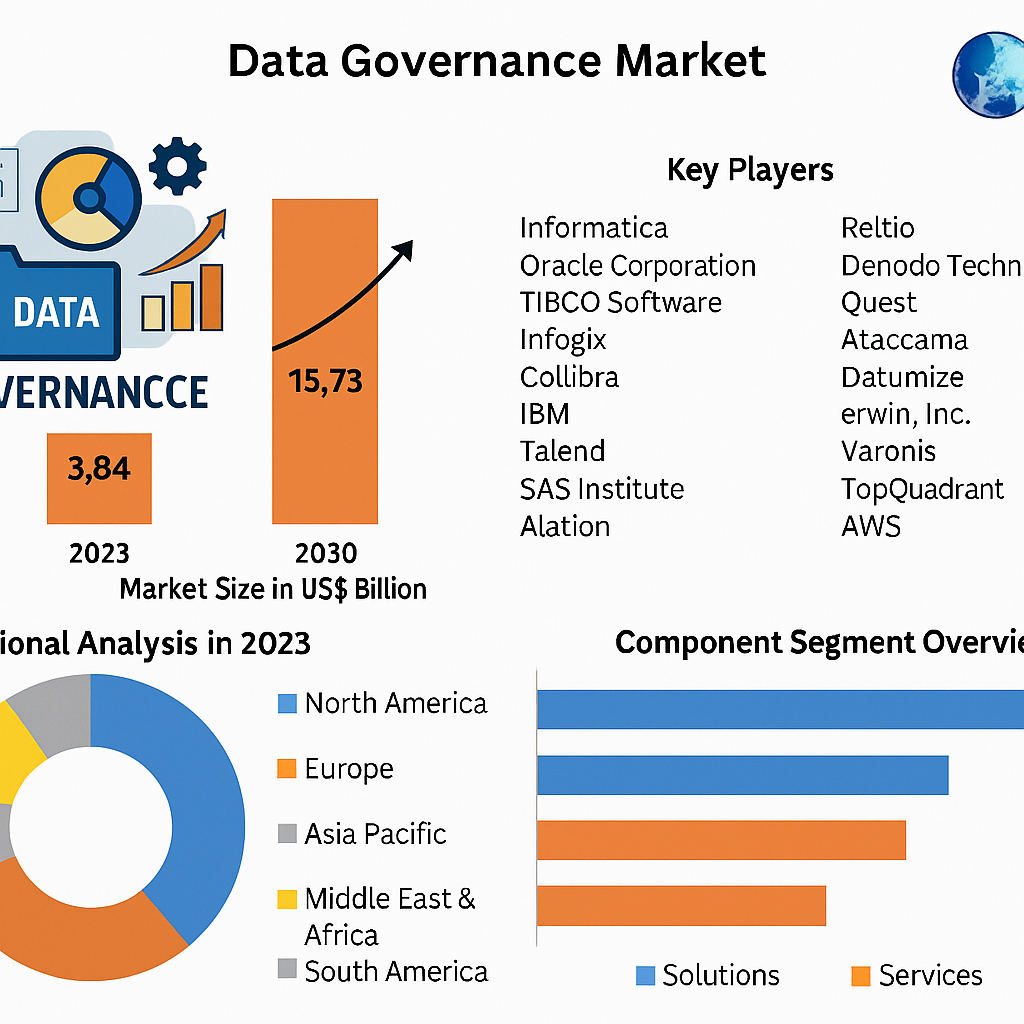Global Data Governance Market Size Set to Surpass USD 15.7 Billion by 2030, Driven by AI Integration and Regulatory Compliance
The global data governance market is experiencing unprecedented growth, projected to expand from USD 3.84 billion in 2023 to USD 15.73 billion by 2030, reflecting a robust compound annual growth rate (CAGR) of 22.32%. This surge is propelled by the increasing need for data quality, regulatory compliance, and the integration of advanced technologies such as artificial intelligence (AI) and machine learning (ML) into data governance frameworks.
Market Estimation & Definition
Data governance refers to the systematic management of data assets within an organization, ensuring data accuracy, consistency, completeness, and reliability throughout its lifecycle. It encompasses policies, procedures, and standards that govern data usage, quality, security, and compliance. Effective data governance enables organizations to derive maximum value from their data while minimizing risks associated with data breaches and regulatory non-compliance.
Get Sample Copy Of The Report: https://www.maximizemarketresearch.com/request-sample/5668/
Market Growth Drivers & Opportunities
1. Emphasis on Data Quality and Accuracy
High-quality data is essential for informed decision-making and operational efficiency. Organizations are increasingly investing in data governance to maintain data integrity, which in turn enhances customer trust and supports strategic initiatives.
2. Regulatory Compliance
The proliferation of data protection regulations worldwide necessitates robust data governance frameworks. Compliance with laws such as the General Data Protection Regulation (GDPR) and the California Consumer Privacy Act (CCPA) is driving organizations to adopt comprehensive data governance solutions.
3. Integration of AI and ML
The incorporation of AI and ML into data governance tools is revolutionizing data management. These technologies facilitate automated data classification, anomaly detection, and predictive analytics, thereby enhancing the efficiency and effectiveness of data governance processes.
4. Cloud-Based Data Governance
The shift towards cloud computing is prompting organizations to implement cloud-based data governance solutions. These platforms offer scalability, flexibility, and real-time data management capabilities, aligning with the dynamic needs of modern enterprises.
5. Data Democratization
Organizations are striving to make data accessible across departments while maintaining control and security. Data governance frameworks support this democratization by establishing clear data ownership, stewardship, and usage policies.
Segmentation Analysis
By Component:
- Solutions: Comprising metadata management, data cataloging, and data quality tools, this segment held the largest market share in 2023.
- Services: Encompassing consulting, implementation, and support services that assist organizations in deploying and maintaining data governance frameworks.
By Application:
- Incident Management: Addressing data-related incidents and ensuring swift resolution.
- Process Management: Streamlining data processes to enhance efficiency.
- Compliance Management: Ensuring adherence to regulatory requirements.
- Risk Management: Identifying and mitigating data-related risks.
- Audit Management: Facilitating internal and external audits through transparent data practices.
- Data Quality and Security Management: Maintaining data integrity and safeguarding against breaches.
By Organization Size:
- Small & Medium Enterprises (SMEs): Dominated the market in 2023, with tailored solutions addressing their specific needs and resource constraints.
- Large Enterprises: Requiring comprehensive data governance frameworks to manage complex data ecosystems.
By Deployment Model:
- On-Premises: Preferred by organizations seeking complete control over their data environments.
- Cloud: Gaining traction due to scalability and cost-effectiveness.
By Industry Vertical:
- BFSI: Managing sensitive financial data and ensuring regulatory compliance.
- Government and Defense: Safeguarding national security data and public records.
- Construction and Engineering: Handling project data and compliance documentation.
- Retail and eCommerce: Managing customer data and transaction records.
- Healthcare & Life Sciences: Ensuring patient data privacy and research data integrity.
- Telecommunications and IT: Handling vast amounts of user data and ensuring service quality.
- Manufacturing: Managing supply chain and production data.
- Energy and Utilities: Overseeing operational data and regulatory compliance.
Country-Level Analysis
United States:
The U.S. data governance market is characterized by early adoption of innovative technologies and a strong emphasis on regulatory compliance. Organizations across sectors are investing in data governance to manage complex data ecosystems and mitigate risks associated with data breaches.
Germany:
Germany’s data governance market is driven by stringent data protection laws and a robust industrial sector. Enterprises are focusing on implementing comprehensive data governance frameworks to ensure data quality and compliance with regulations such as the GDPR.
To view Full Report : https://www.maximizemarketresearch.com/market-report/global-data-governance-market/5668/
Competitor Analysis
The data governance market is highly competitive, with key players offering a range of solutions and services:
SAS Institute: Offers advanced
Informatica: Provides comprehensive data governance tools, including data cataloging and quality management.
Oracle Corporation: Offers integrated data governance solutions within its broader data management portfolio.
IBM: Delivers AI-powered data governance platforms that facilitate automated data discovery and classification.
SAP: Integrates data governance capabilities within its enterprise resource planning systems.
Collibra: Specializes in data intelligence platforms that support data governance and stewardship.
Talend: Provides open-source data integration and governance solutions.
Alation: Focuses on data cataloging and collaborative data governance.


